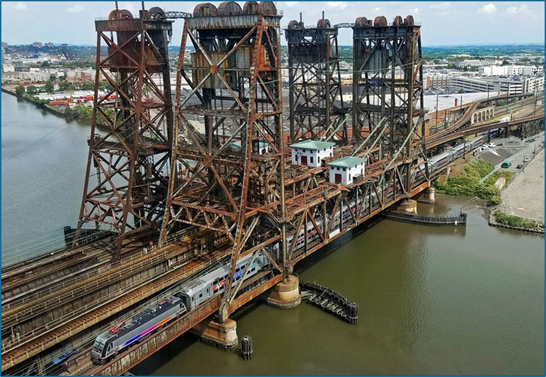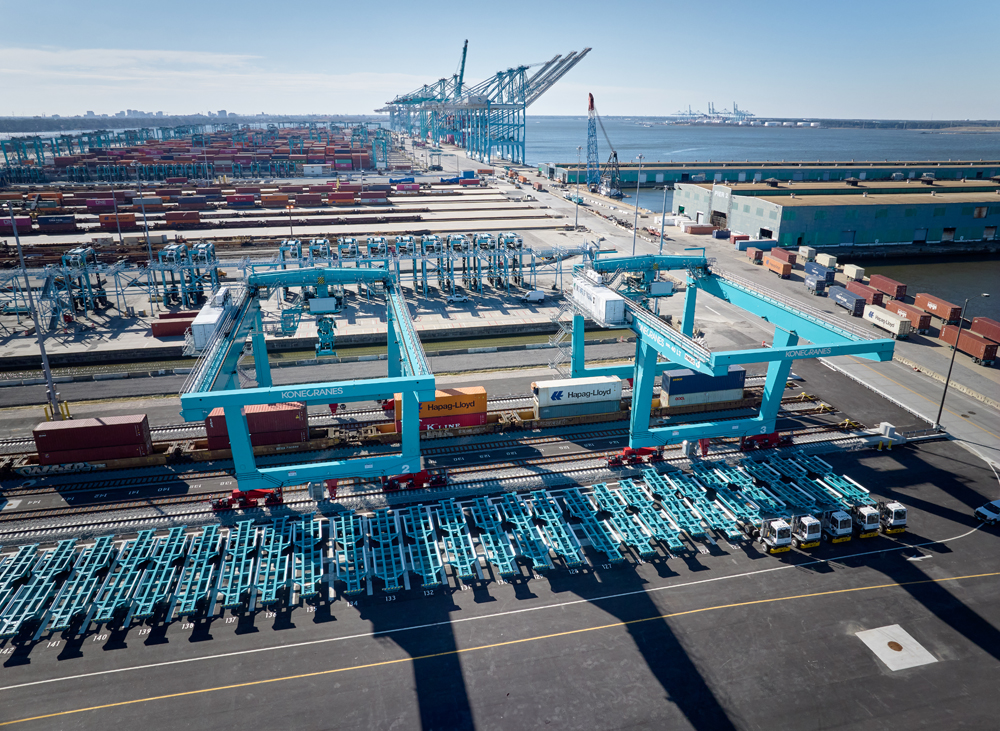VANCOUVER, B.C. — The Canadian Transportation Agency announced on Monday that it will investigate rail freight performance in the area of Vancouver, British Columbia — the first time it is using its new authority to launch such investigations.
Canadian National and Canadian Pacific responded with statements defending their performance in the Vancouver area, with CP CEO Keith Creel saying the railroad “takes great exception” to being included in the investigation.
The agency said in a press release that it determined the investigation, possible because of provisions added to the Canada Transportation Act in 2018, was appropriate “based on information received from shippers associations and other parties. The matters covered by the investigation will include whether there is evidence of discriminatory treatment of certain commodities, how freight rail permits and/or embargoes are being used, and whether railway companies operating in the Vancouver area are fulfilling their service obligations.” If it determines the railroads are not fulfilling those obligations, the agency can order remedies.
Agency CEO Scott Streiner said in the release, “We’ll get the investigation done as quickly as possible, but we’ll take the time required to gather all the relevant facts.”
A hearing will be held in late January.
“What one would hope to see coming out of the investigation is a third-party realistic assessment of either how good or how bad the situation is,” says Bob Ballantyne, president of the Freight Management Association of Canada, a group that represents about 100 shippers.
Shippers have been affected by Vancouver-area service problems for weeks, Ballantyne says.
“There clearly are problems,” Ballantyne says. “It seems to be mostly things like forest products that are being most affected.”
The success of Canada’s export-based economy, along with the surge of U.S.-bound Asian imports that land at Vancouver, have put pressure on transportation infrastructure in and around Canada’s busiest port city. Real estate is expensive, and many transportation facilities are hemmed him by water, mountains, or existing development.
“The problems are going to have to be dealt with, but on a long-term basis,” Ballantyne says.
The Canadian Press reports that the Forest Products Association of Canada welcomes the investigation, the report says, claiming that rail delays cost the industry over $500 milion last year, and that in its response, CN said it would cooperate fully. The railroad said it “acted swiftly and efficiently to serve its customers during this period and played its role in moving record volumes through Vancouver’s complex and multi-commodity supply chain. During this period, CN moved 10 per cent more freight through Vancouver than last year.”
In CP’s statement, Creel said, “”We have not been made aware of any formal complaints to the CTA relating to our service in Vancouver, nor has the CTA been in touch with us prior to launching this investigation. It is irresponsible to institute an investigation without at minimum reaching out to ask CP for information. We have always been forthright and cooperative with the CTA.” Canadian Pacific noted it set a single-month record for grain shipments to the Port of Vancouver in November 2018, and that car processing time at its Coquitlam, B.C., yard improved by 21 percent in December 2018 over the previous year.
— Updated at 10:30 a.m. CST on Jan. 15 with comments from president of Freight Management Association of Canada.














This is a good thing because it should highlight the main problem: The government-owned bridge over the Fraser River at New Westminster. The current speed is at 10 MPH and is the primary chokepoint in the Vancouver area. A new bridge is desperately needed.
…more snooping by clueless jerks, Trying to justify their CUSHY positions.shame on you….better to spend their time doling something worthwhile.DUMB CANADIANS
Isn’t that funny. I just presented this problem at my Toastmasters club about 8 days ago and how it could have an impact on the Canadian economy. The line that is of particular concern is what I call the “Burnaby Lake Corridor”, shared by CN, CP, Amtrak, BNSF, VIA, and Rocky Mountaineer. The line runs from Surrey through New Westminster, Burnaby, and then splits at Willingdon Avenue, with the busier of the lines going through a tunnel onto a bridge over Burrard Inlet into North Vancouver. The other line heads into Vancouver. Watching trains over the years, it definitely has congestion issues right now. I am seeing trains wait at any given time of the day along the line. The bottlenecks are the tunnel/bridge towards North Vancouver and the bridge over the Fraser River. They have to do something or this going to be problem.
The thought that comes to mind is the old saying: “Scariest words in the world; ‘I’m from the government, I’m here to help you'”.
People who scream “government intervention” with stuff like this clearly haven’t spent a moment as a railroad customer having to experience first hand what passes as service. Frankly I think it’s good the CTA is going to look into this. Service in this area has been suspect for quite some time. Late last year, congestion had grown bad enough that CN put an embargo in place; likely the same one referred to by the agency.
Interesting in that CP Rail’s CEO, Keith Creel, sounds rather defensive at the news of this investigation by the Canadian federal government. Perhaps a hangover from CP’s ‘Precision Scheduled Railroad” concerns of a few years ago?
It sounds like perhaps the avalanche of grain traffic and exports has overwhelmed the two rail system network in the Vancouver BC metro area. Lumber and merchandise traffic might have received the short end of the stick’ in terms of service and performance by CP + CN.
The freight rail network there is certainly constrained geographically by water, mountains and urbanization there. I visited up there in late October last year and it appeared there was considerable freight rail traffic parked in the CP/CN yards along the Fraser River Valley (east of downtown Vancouver BC). Curiously, the CP Rail mainline that parallels Canada Highway 1 through Burnaby and on to the east, was quiet the day we drove along that line heading out east on Highway 1.